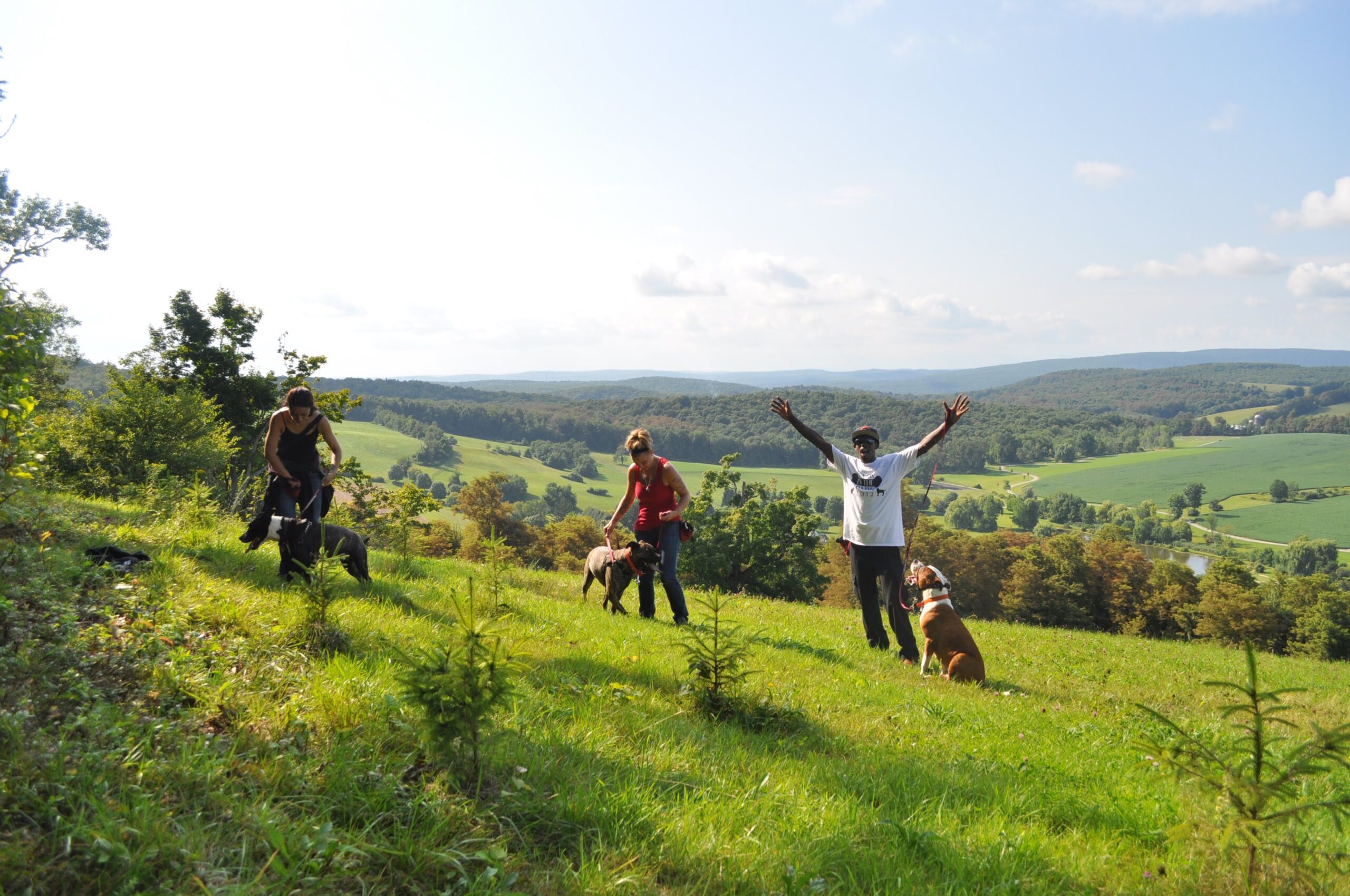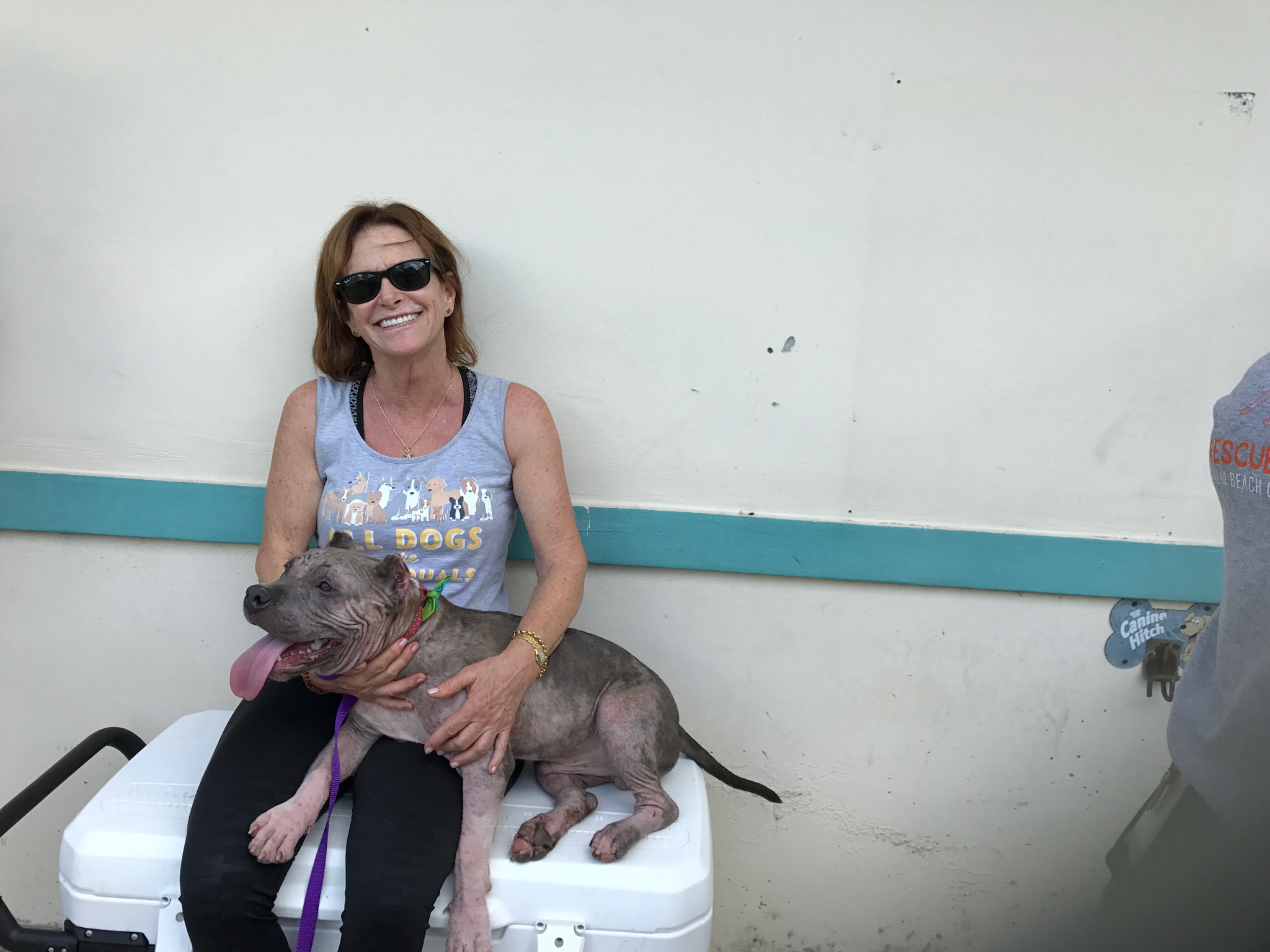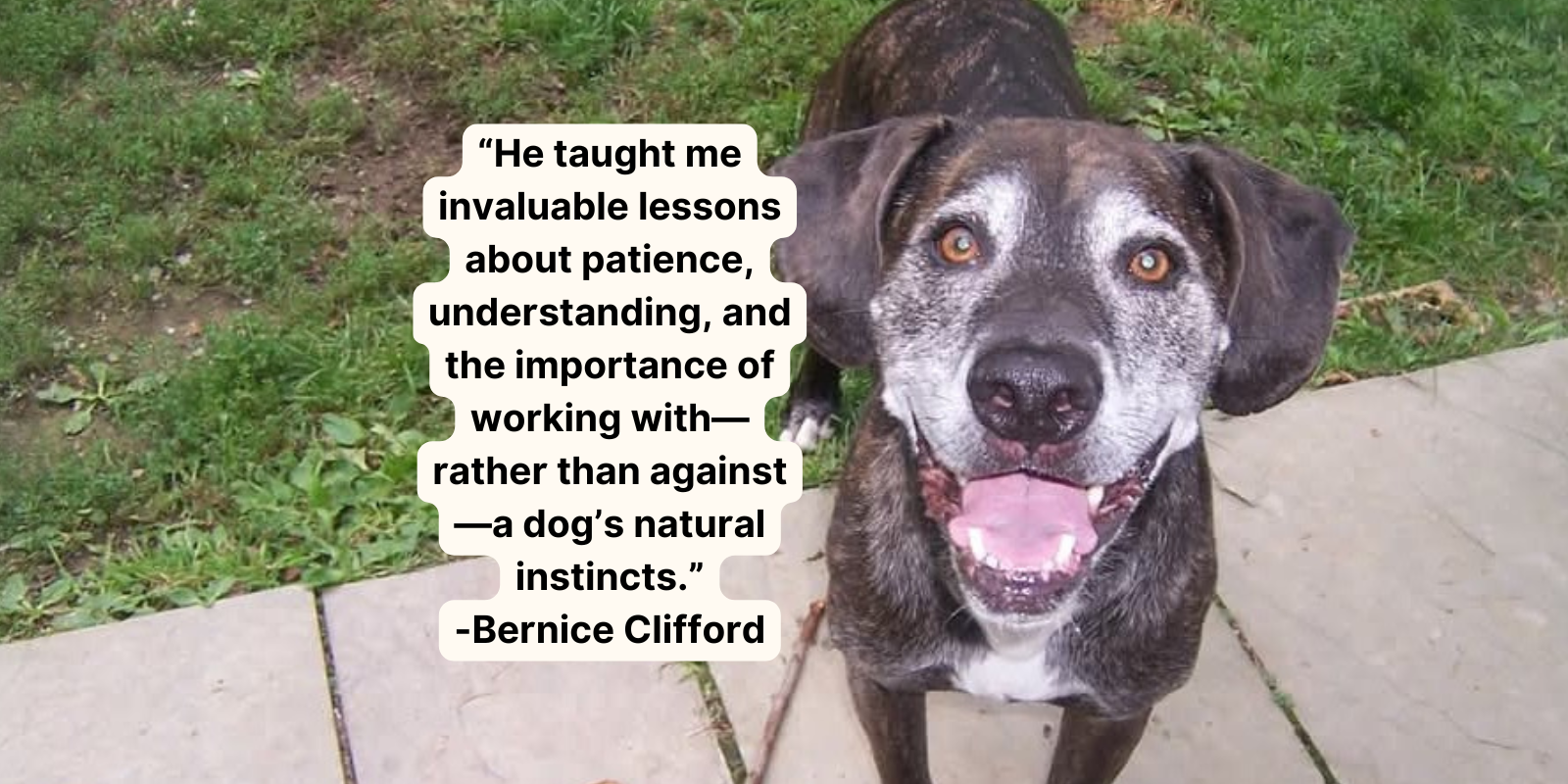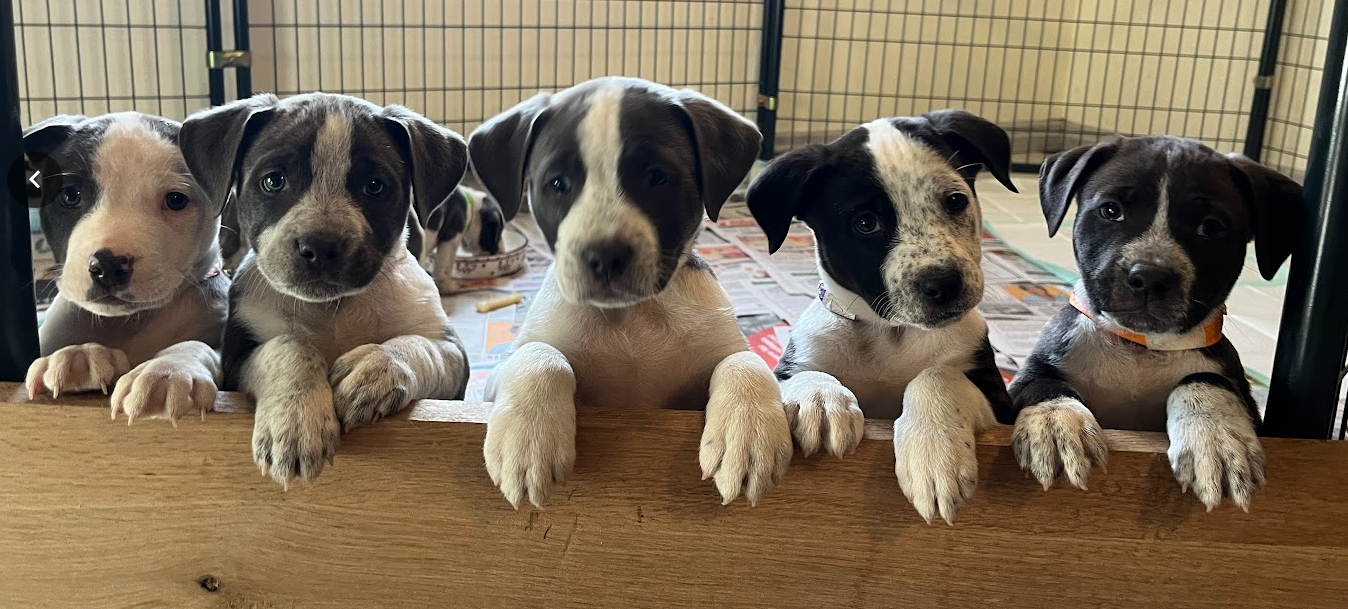If you work or volunteer with dogs, you probably know by now that the overwhelming majority of “pit bull” dog owners are regular, everyday folks. But are we, the experts in the animal welfare field, communicating this to the public? Or are we reinforcing the very same stereotypes and fears that we’re working to change?
Dog fighting, thugs, gang bangers. This is the context in which the public most often learns about “pit bull” dogs. It’s a disproportionate part of the conversation, given that the majority of “pit bull” dogs and their families live normal, boring lives untouched by criminal activity.
So it’s our responsibility to ask: How, as the experts, do we play a part in this conversation?
If, in speaking with the public, we lead with the negative without putting it into context, we are inadvertently perpetuating harmful stereotypes about “pit bull” dogs and their owners.
The public (including law makers), are looking to us as the experts. They internalize this negative messaging and it solidifies the false idea that only criminals want “pit bull” dogs. This leads to restricted adoption policies, breed specific legislation, and other discriminatory policies.
We need to shine an equal, if not brighter, light on the positive if we want to affect real, lasting change for animals in our communities. We need to stop unintentionally perpetuating the false idea that the majority of “pit bull” dogs are or ever have been anywhere near dog fighting.
We need to change the conversation, by counterbalancing the negative with the positive.
We must help the public – including lawmakers – understand that problematic “pit bull” dog owners, like “gangsters”, are the chronic fringe of dog owners. They are not the majority (not even close!). Let’s bump this group out of the spotlight and show the public the majority instead.
Now, more than ever before, “pit bull” dogs are being adopted and cared for by everyday families. In leading local and national conversations about “pit bull” dogs, we would do well to include the positive: everyday people are the overwhelming majority of people who share their lives with “pit bull” dogs. They’re living quiet, unremarkable lives, as valued members of families and communities. They are our friends, co-workers, and neighbors. They are the norm when it comes to “pit bull” dog owners.
It’s the criminals that are the minority, the exception to the rule. Let’s be sure to communicate this to the public, even when we need to share the negative stories. No one is denying that bad things happen. But in raising awareness about victims of cruelty, we must also be mindful of how we may be reinforcing negative stereotypes that are counterproductive to our work as “pit bull’ dog advocates.
Let’s change perceptions by giving the public the whole story, every time we speak about “pit bull” dogs: despite cruelty cases and criminal activity, the overwhelming majority of “pit bull” dogs are living with everyday folks. What we see on the news has absolutely nothing to do with their day-to-day lives.
The Majority Project is a growing collection of photos, submitted from everyday families around the country, created to help facilitate this change in the conversation. Shared in a variety of media formats, including Flickr and Tumblr, the Majority Project is designed to challenge incorrect stereotypes about “pit bull” dog owners and shine a spotlight on the majority. We hope that you will use it in your work as a public advocate for “pit bull” dogs and show your community the other side of the story.
[vimeo http://www.vimeo.com/53622294 w=500&h=281]
Learn more about TheMajority Project here and submit your photos. It’s never too late to become part of the Majority Project.
For more tips on messaging, please see this blog post.
For more on the langauge of advocacy, please see our handout.










